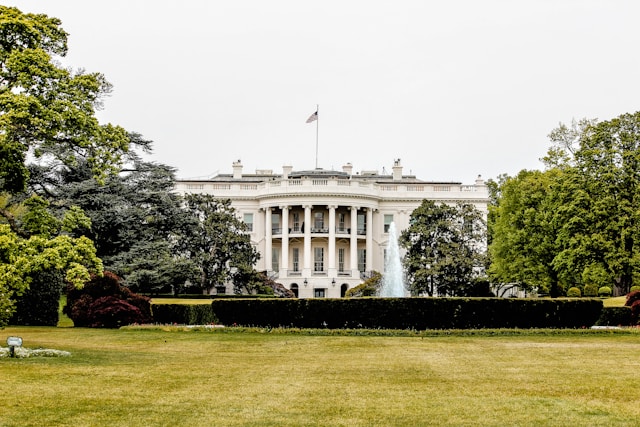Trump is re-elected as President of the United States, cross-border e-commerce faces a new round of challenges and opportunities
 2024-11-11
2024-11-11
 36
36
In the early morning of November 6th, US time, the results of the US election were released. Donald Trump won more than 270 electoral votes and was successfully elected as the next US president. Trump's re-election will have a profound impact on the global trade pattern, especially on China's cross-border e-commerce industry.

The impact of Trump's election on cross-border e-commerce
1. High tariff policy
During the campaign, Trump said many times that if re-elected, he would significantly increase tariffs on foreign goods imported into the United States. Specific measures include:
- Impose a general tariff of 20% on all imports from all Country.
- Impose an additional 60% tariff on Chinese goods.
This high tariff policy will directly affect Sino-US trade and increase the cost of Chinese goods to EXP and the United States. For cross-border e-commerce companies, this means rising product costs and declining competitiveness. At the same time, American consumers will also face higher consumption costs, because Chinese products have always been known for their price advantage.
2. Supply chain restructuring
Trump's goal is to reshape the global supply chain landscape to make it more U.S.-centric. He plans to withdraw from the Indo-Pacific Economic Framework (IPEF) supply chain agreement and take tough protectionist measures to concentrate high-quality resources in the United States. This will have a negative impact on China, which has an advantage in the supply chain, and may lead to new negative shocks to the global trading system.
3. Manufacturing reshoring
The Trump administration has been committed to promoting the return of manufacturing to the United States. Through high tariffs and protective trade policies, it is expected that more manufacturers will choose to set up factories in the United States or purchase goods from Mexico. This will prompt the restructuring of global supply chains, and regions such as Europe, South America, Southeast Asia and India and Pakistan may become the focus of new trade routes.
Specific impact analysis
1. Rising transportation and supply chain costs
The high tariff policy will directly lead to an increase in the comprehensive cost of transportation and supply chain. Especially during the window period before the implementation of the tariff policy, U.S. import companies will have a wave of stocking up, logistics demand will increase, and freight rates will rise. Cross-border e-commerce and foreign trade enterprises will face higher production costs, which will affect their market competitiveness.
2. Rising consumer costs
For American consumers, high tariffs mean higher costs to buy Chinese products. As Chinese products have always been known for their price advantage, the increase in tariffs will be directly passed on to consumers, resulting in higher consumption costs.
3. Early shipment tide
In order to avoid additional tariffs, many cargo owners will choose to distribute goods in advance, which will trigger a wave of early shipments. It was originally the off-season after the Lunar New Year, but early shipments will break the original rhythm. The owner also needs to consider the storage capacity and inventory cost of the U.S. warehouse, but what is certain is that the owner is already planning this matter, and the clarification of the election situation will only speed up the pace of the decision.
4. Uncertainty of friendly shore outsourcing
Trump's proposed tariff policy not only targets China, but also includes goods from allies. Vietnam and Mexico, as the main beneficiaries of "friendly shore outsourcing", may face new tariff pressure in the Trump 2.0 era. Mexico, in particular, has become the best springboard to avoid direct import tariffs from the United States and indirectly enter the American market because of its geographical advantages. However, Trump has spoken to impose a 100% tariff on electric vehicles from Mexico, which will increase the uncertainty of goods from Mexico entering the United States.
5. Prospects for negotiations at the East Terminal of the United States
The prospect of the US East Terminal negotiations on January 15th next year has also changed due to Trump's election. The new president will take office on January 20. If there is a strike on the 15th, the Biden administration may have no intention of dealing with this matter. The new Trump administration has just Take over, and won't "favor" trade unions like the Democratic government. The motivation and intensity of government intervention are unknown. If there is no news from the negotiations by mid-November, the cargo owner will start to take self-protection measures again, either delivering the goods ahead of schedule or going to the West Bank instead.
Epilogue
Trump's re-election has undoubtedly brought new challenges to cross-border e-commerce. Factors such as high tariff policy, supply chain restructuring and manufacturing reshoring will have a significant impact on China's foreign trade EXP, logistics and supply chain. Although specific policies have not yet been introduced, the industry has begun to prepare for a rainy day to cope with the upcoming changes. For cross-border e-commerce enterprises, this is both a challenge and an opportunity. How to find a breakthrough in the new trade environment will be an important topic in the next few years.



















